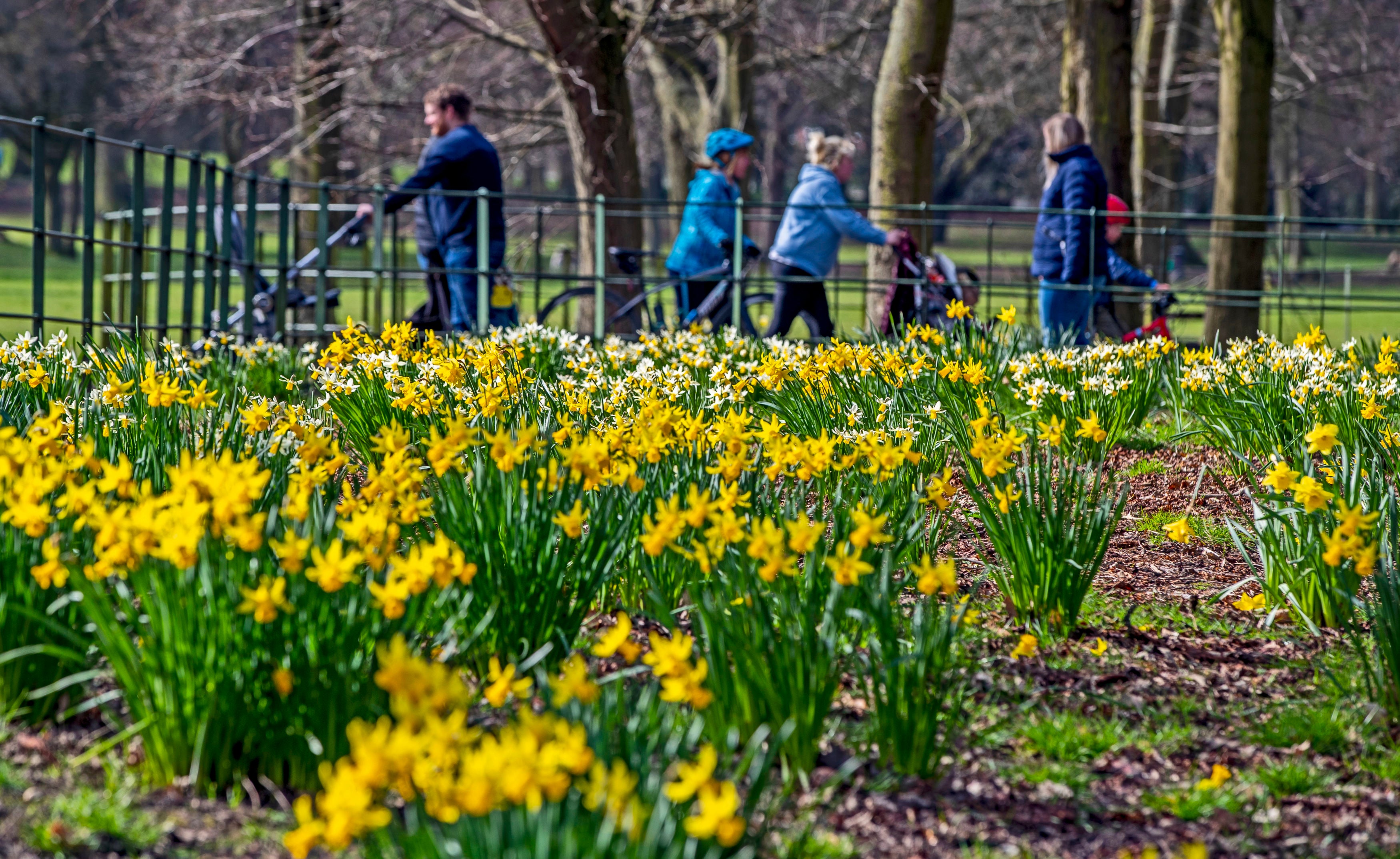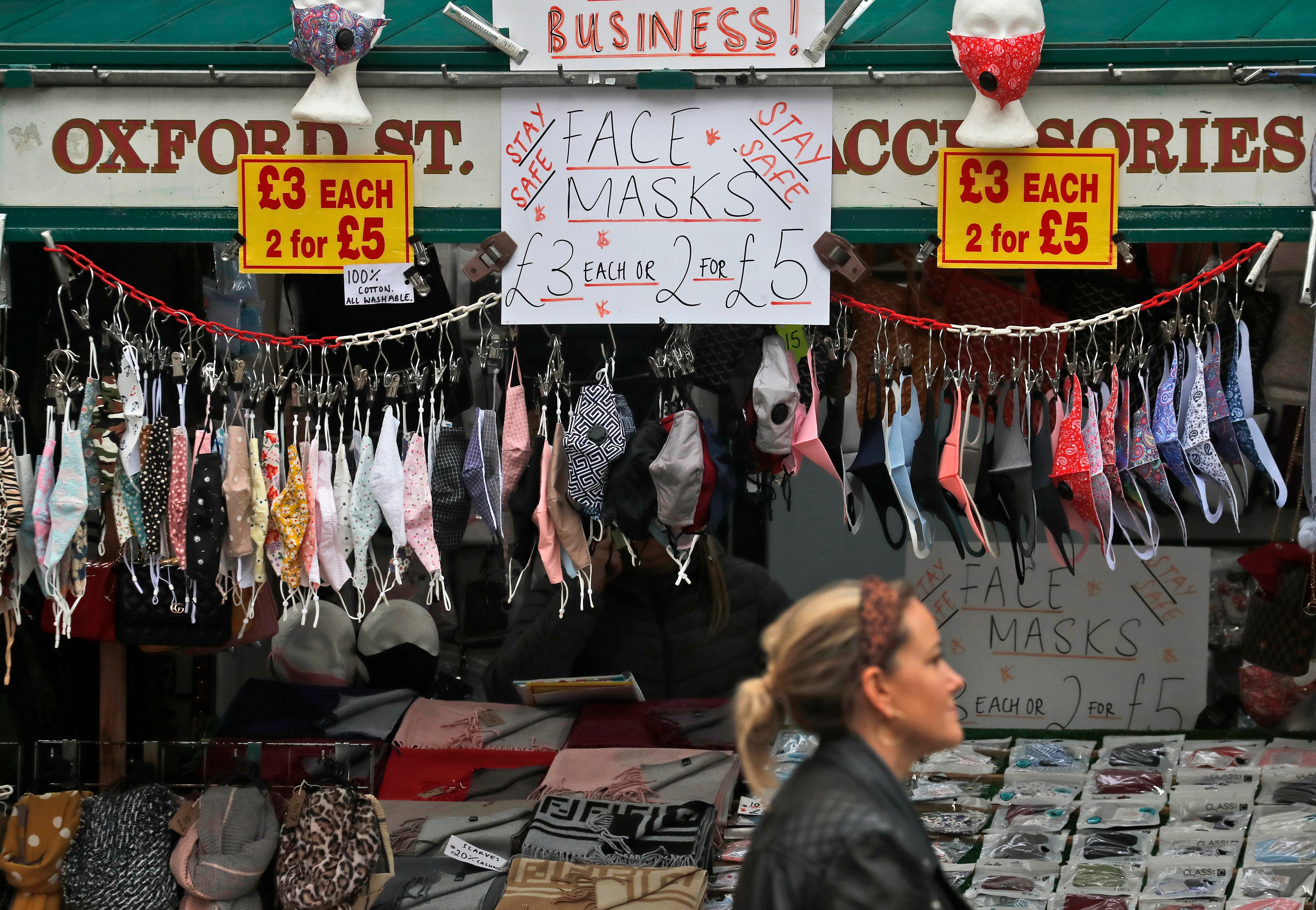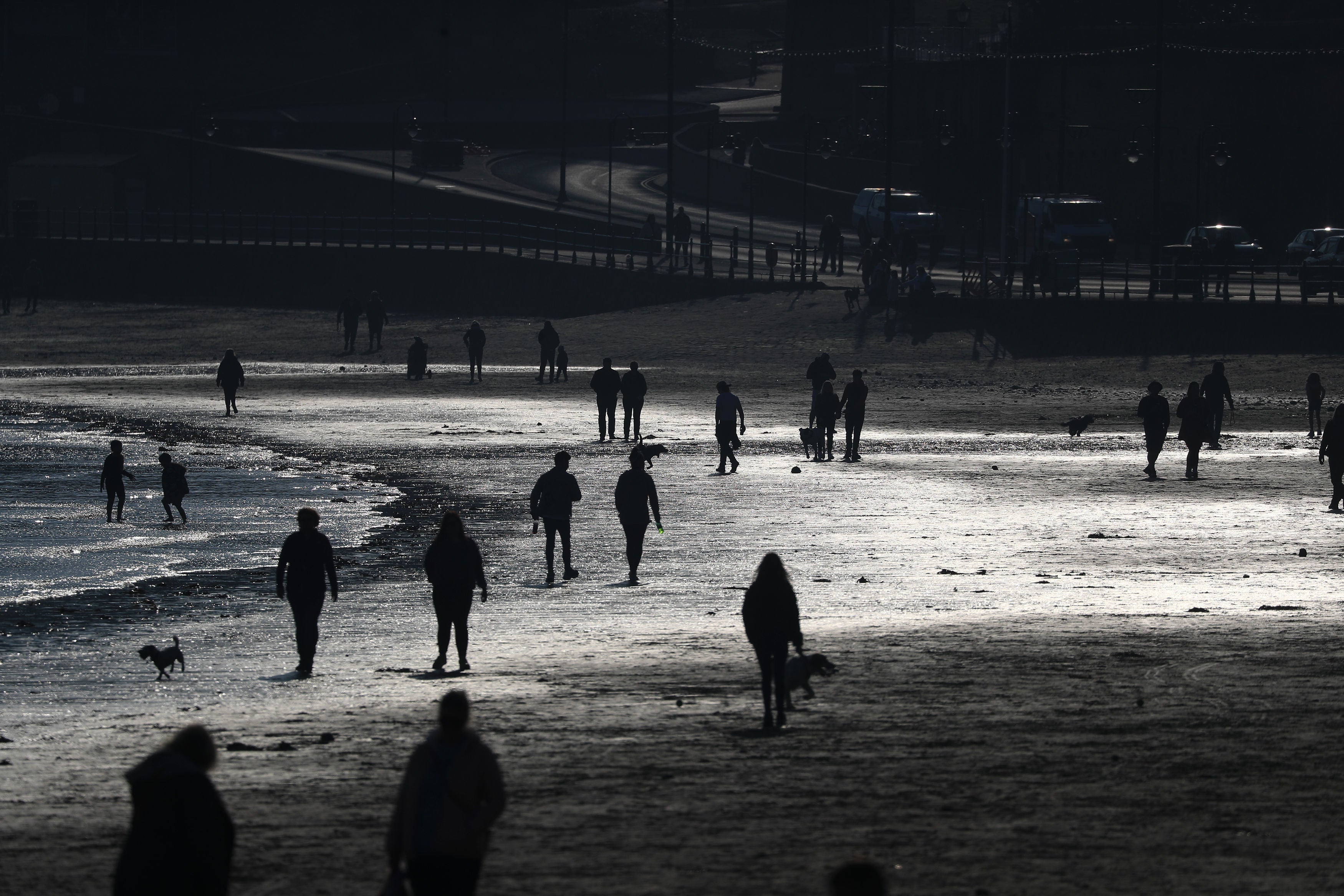‘Hands, Face, Space and Fresh Air’: Why sticking to Covid advice is key even as rules are eased

“It’s going to be great to get back out there,” said Nigel Woodings, who runs an outdoor fitness club in Derby, when asked about the rules easing as part of the next stage of the government’s roadmap out of lockdown.
Like millions across the UK, the 46-year-old has had to adapt his business to comply with coronavirus restrictions.
Since 29 March, the guidelines have changed, with six people from different households permitted to meet outdoors – though only people from the same household may meet indoors – and outdoor sports and leisure facilities able to open.
When lockdown came in, Mr Woodings moved his classes online. “About 90 per cent stayed with me. I won’t pretend it’s the same as being outdoors but it’s been about making the best of the situation.”
With restrictions beginning to ease, he will be able to hold bigger classes, but his business will still maintain Covid safety protocols, including social distancing.
The advice from the government is that people should continue to minimise travel and work from home where possible.
As meeting up with friends and family carries the risk of the infection spreading, the public is also being urged to keep washing hands, wearing face coverings, keeping a social distance and meeting outdoors where the risk is much lower – the “Hands, Face, Space and Fresh Air” rule.

Lawyer Shazia Vento, 43, “can’t wait” for the rules to change, partly so her two children can see their friends again.
“Being three and six they have completely different interests in terms of what they play with,” she said. “You can tell that they miss the interaction. It’s so important at their age.”
The virus can be spread in three main ways: breathing in droplets that come from someone else with the virus – when in close contact; touching a surface that droplets have landed on or that has been contaminated by an infected person touching it; and breathing in air that carries the virus in aerosols.
Dr Shaun Fitzgerald, director of the Centre for Climate Repair at Cambridge and a member of the government’s Science Advisory Group for Emergencies (SAGE) environmental and modelling group, said meeting outside was crucial to lowering the risk of the virus spreading.
“Opening the windows is really good if you're indoors, but it’s nowhere near as good as being outdoors,” he said, adding: “If you're outdoors and going for a walk, there are fewer surfaces for you to be touching.
“Just think about ‘hands, face, space’ as a sort of a general mindset when you're going around outside and going about daily business outside of the home.
“The more compliant we are now, the quicker the incident rate is going to come down and the sooner we can we will all get out of this mess, and be able to have society functioning.
“So that's what it's about. It's about trying to get out of this as quickly as we can which means complying with the rules.”

Professor Brooke Rogers (OBE), a professor of behavioural science and security at King’s College London, said one of the challenges as people start seeing friends and loved ones is remembering to stick strictly to rules.
“Adults can very easily social distance but it’s very, very difficult to explain to a two-year-old why she isn't allowed to crawl all over everyone and play with the other children,” she said.
“There are things that you can do. Make a plan. If you're going to meet up with another household or another family group, try to plan it in an environment that is the safest possible or when they're allowed to come inside, if you have to meet inside, make sure you've got that ventilation aspect of social distancing and everything else in place. Actually have those conversations.
“People are more willing and likely to stick to the plans made in advance rather than getting someone you haven't seen in ages near you, close to you and kind of bumbling around in negotiating that space.
“As we move towards that rule of six or opening up and two households can meet, it's not meeting six people without any of the rules and it's not meeting another household without any of the rules.
“It's following all of that advice ‘hands, face, space, fresh air’ in that context with six people or another household.
She added: “I'm also quite worried that people will almost see it as a free for all and see six people in the morning, six people over lunch, six different people over dinner and they do it again the next day.
“I think we need to remember that if we make one exception in our life – ‘we know them really well, we trust them, we know they're not seeing many other people’ – if you multiply that across all of the people, or all the households the country who are just making that little exception, maybe even one tiny exception on the day, that's when we can really, really see the potential for the virus to just pick up speed and skyrocket.”
For more information on how to stay safe, visit https://www.gov.uk/coronavirus
Bookmark popover
Removed from bookmarks